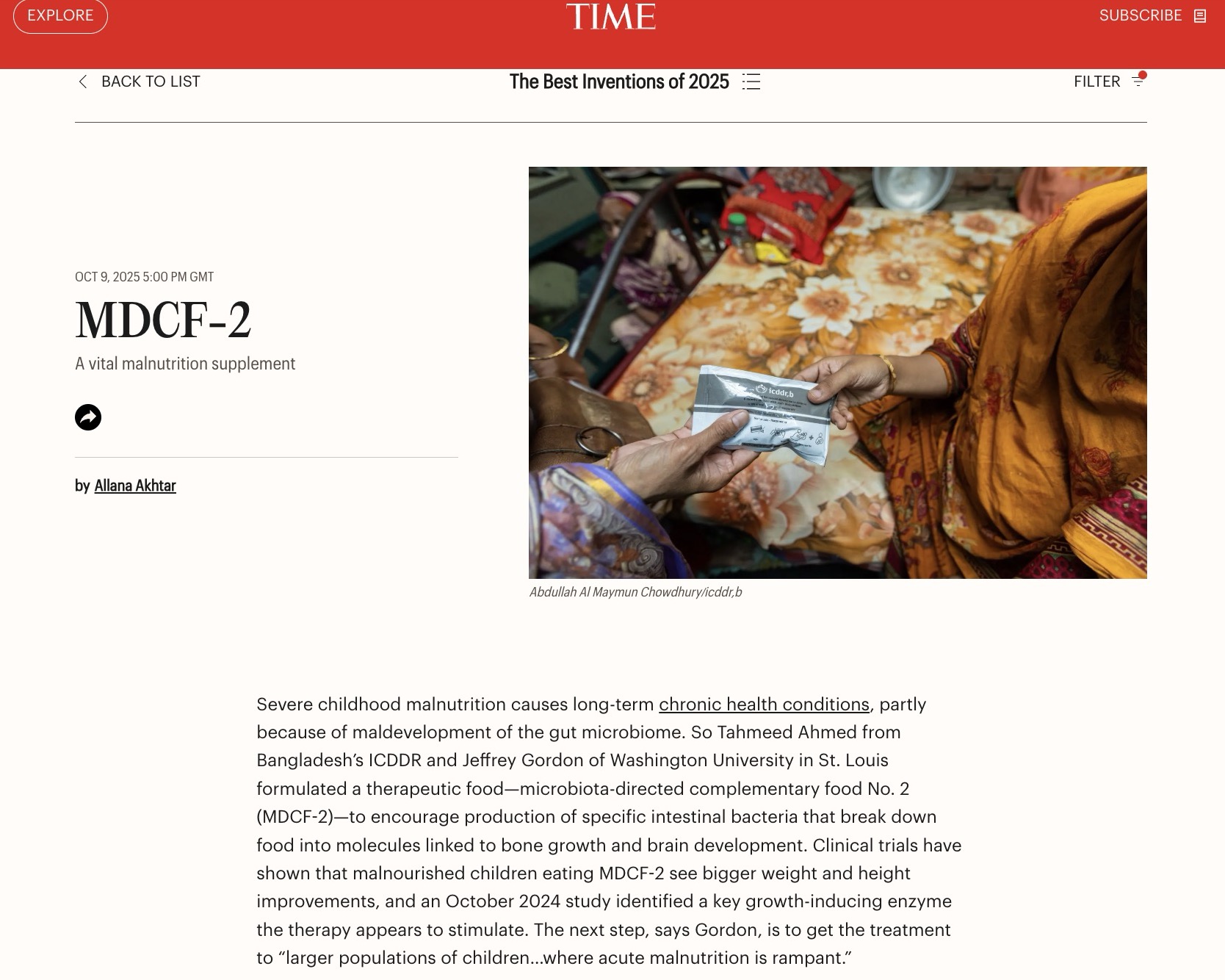News Flash

DHAKA, Oct 10, 2025 (BSS)- TIME magazine has named the International Centre for Diarrhoeal Disease Research, Bangladesh (icddr,b)’s gut-healing food for malnourished children MDCF-2 among the world’s Best Inventions of 2025 for its remarkable social impact.
The recognition highlights MDCF-2 (Microbiota-Directed Complementary Food) - as a transformative nutritional supplement capable of restoring intestinal health in malnourished children, an Icddr’b press release said.
The innovation is the result of years of collaborative research between icddr,b and Washington University in St. Louis, USA.
Developed from a blend of chickpeas, soybeans, peanuts and green banana flour, MDCF-2 was specially designed to nourish beneficial gut bacteria that are essential for a child’s immunity, neurological development and healthy growth.
Despite decades of global effort, malnutrition remains a major cause of death for nearly half of all children under five worldwide.
Conflicts, displacement and climate-related disasters have further worsened the crisis, leaving millions at risk of stunting and wasting.
The release said, the innovation’s journey began with an informal discussion between ICDDR,B’s Executive Director Dr. Tahmeed Ahmed and Washington University’s gut microbiome researcher Dr. Jeffrey Gordon.
While Dr. Ahmed has worked for decades on child malnutrition, Dr. Gordon, a pioneer in microbiome science, has primarily focused on obesity and gut bacteria research.
“Our research shows that a child’s nutrition and growth depend on the microbial community within the gut,” Dr. Gordon said.
“We identified key beneficial microbes that process specific food components the body cannot. Clinical trials in Bangladeshi children proved that MDCF-2 helps rebuild the gut microbiome, with effects extending beyond the intestine.”
Dr. Tahmeed Ahmed said the international recognition is “a powerful source of inspiration,” adding, “It proves that when science and human compassion come together, the world’s most complex health problems can be solved.
This locally made, affordable innovation can not only save millions of malnourished children but also help them reach their full potential.”
Currently, large-scale studies on MDCF-2 are underway in India, Pakistan, Mali and Tanzania, the release said.
Researchers believe the innovation has the potential to revolutionize global nutrition programmes and reshape how the world combats childhood malnutrition, the release added.